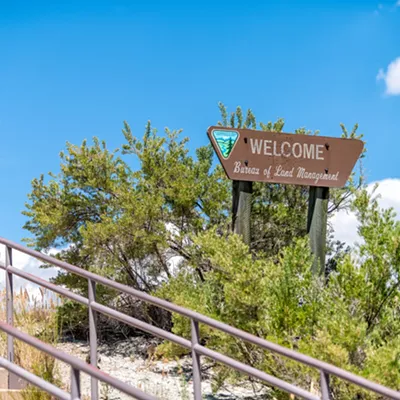What an irony. Or maybe, what a warning. Fifty years after the official censure of Joseph McCarthy in the U.S. Senate (on Dec. 2, 1954), there is but one book on McCarthyism getting any attention, and its title is, simply, Treason. In it, author Ann Coulter accuses her political foes -- liberals -- not with being wrongheaded or stupid, but of being traitors to the nation. They are part of a plot to undermine "Americanism," which she seems to assume is synonymous with her own beliefs.
The book is a perfect specimen of McCarthyism, with no apologies. Coulter even has a chapter accusing liberals of deliberately blackening the reputation of Joseph McCarthy.
There are good books on McCarthyism coming out on this half-century anniversary (for example, Reds: McCarthyism in Twentieth-Century America by Ted Morgan). But they are not likely to sell like Coulter's book because of a principle Joe McCarthy himself discovered. When people are perplexed and frightened, they don't like to be told it is an ambiguous, gray-toned world, and frustrations must be accepted. Many people prefer, if they can possibly swallow it, a nice, simple explanation like the one Coulter offers in her title.
In 1951, Americans were frustrated by the conquest of China by its Communist party. Who was to blame? In reality, it was a complicated question with decades of prelude in Chinese history. But it wasn't complicated to Joe McCarthy. "How can we account for our present situation unless we believe that men high in this government are concerting to deliver us to disaster? This must be the product of a great conspiracy, a conspiracy on a scale so immense as to dwarf any previous such venture in the history of man. A conspiracy of infamy so black that, when it is finally exposed, its principles shall be forever deserving of the maledictions of all honest men." Specifically, McCarthy accused former General of the Army and Secretary of State George Marshall of being a traitor.
This was a man considered by most as a patriot on the level of George Washington. Since even Marshall had to defend himself against charges of treason, what chance did the hundreds of others have -- especially if they had been so foolish as to once in their lives sign a petition or join and organization later identified as a "front" for the Communist party?
When McCarthy rattled his lists of "known communists," like a witchdoctor intoning curses, people knew they were in trouble, whether they were communists or not. You could show up with whatever proofs of patriotism you could manage, but you couldn't be absolved. There's no way to un-sling mud.
One of the only organizations that dared defy McCarthy was the Army. McCarthy couldn't find many communists in the Army, but he did find a dentist who had been drafted into the Army and had refused to sign the required document stating he did not belong to the communist party. The Army wrote it off as a classic military snafu. McCarthy said, "I think here you have the key to the deliberate Communist infiltration of our armed forces."
He called the dentist's commander, Gen. Ralph W. Zwicker, on the carpet. The general answered some of the questions and said other matters of the Army were none of his business. McCarthy launched into a stream of invective. If a man refuses to answer the questions of his committee, then "that man is not fit to wear the uniform of his country ... He is in the same category as the traitor whom he is protecting."
Zwicker was a war hero; he had earned the Silver Star for leading his regiment up the cliffs of Normandy under heavy fire. Americans may not have identifed with the hapless diplomats and professors McCarthy usually picked on, but McCarthy's charges against military men rubbed people the wrong way. Sensing the change, Eisenhower called upon Republican Senate leaders to turn the tables on McCarthy and investigate his harassment.
The "Army-McCarthy Hearings" were one of the earliest uses of television in politics. Americans sitting at home judged as the Army and McCarthy made their cases. McCarthy did not do well when his own behavior was being examined. But he had, of course, done his research.
He found that one lawyer in the law firm representing the Army had belonged to the National Lawyers Guild while in Harvard Law School. The NLG turned up later on a list of "communist front" organizations. There was no serious question about the man's loyalty, and McCarthy knew it. But the senator threw the name out strictly to show that he could do damage.
The Army's chief lawyer, Joseph Welch, answered McCarthy's ploy with one of the most famous rebukes in American history: "Until this moment, Senator, I think I never really gauged your cruelty or your recklessness ... Have you no sense of decency, sir?"
It was exactly the right question. Decency is not a hidden thing, like conspiracy, and it is not an intricate thing, like foreign policy. It is something that the mass of citizens is well equipped to judge. As much as the American electorate detested how communists behaved, another question now entered the discussion: How should Americans behave? By the end of the hearings, national opinion had turned around and McCarthyism collapsed. McCarthy was censured by the Senate at the end of 1954 and died three years later of his alcoholism.
The irony of McCarthy's life is that McCarthyism, with secret lists, show trials and its indifference to the human suffering in the name of a larger cause, was the closest the U.S. ever came to being subverted to a Soviet-style government.
William Stimson is a journalism professor at Eastern Washington University.
Publication date: 12/09/04

















